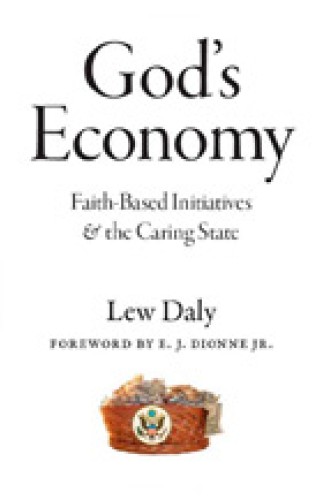A review of God’s Economy
God's Economy is a bold, wide-ranging book that will challenge both liberals and conservatives. A senior fellow at Demos, a nonpartisan public policy research and advocacy organization, Lew Daly sets President Bush's faith-based initiative and the intense debates that swirled around it in the much broader context of American judicial, social and economic history and of European Christian Democracy in the previous 100-plus years. His brilliant synthesis has the potential to transcend the debates and mistakes of the Bush years.
Daly maintains that President Obama's endorsement of much of Bush's faith-based initiative during his presidential campaign and his subsequent actions as president have cemented that initiative as a bipartisan consensus in American politics. But he also argues that the liberal-conservative battles over Bush's initiative and the inherent weaknesses of Bush's vision produced an approach that was fundamentally inadequate for overcoming poverty.
Daly contends that Bush's faith-based initiative transcended earlier debates between liberals and conservatives about antipoverty programs. In those debates, conservatives wanted to end government responsibility by privatizing welfare programs while liberals wanted to expand government-run programs.






